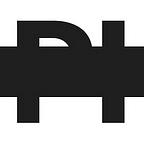A shrinking feeling: Anonymity, Privacy, and Free Expression
This piece was written by PI Legal Officer Tomaso Falchetta.
Is there a right to remain anonymous? And what does anonymity mean in the “digital” world?
Privacy International and Article 19 have recently filed an amicus curiae briefing to the European Court on Human Rights in the case of Breyer v Germany, to help the Court address these questions.
The case relates to a German law which imposes a legal obligation on telecommunication providers to store personal details of all their customers, even if such details are not necessary for billing purposes or other contractual reasons. As a result of this law, the applicants (Patrick and Jonas Breyer) argue that their personal data, as users of pre-paid (“pay as you go”) mobile phone SIM cards, is stored by their respective service provider and therefore they are not able to communicate anonymously via mobile phone.
Anonymity has long been an essential tool to protect oneself from unwanted attention, unlawful surveillance, and even reprisals at the hand of a repressive state (or an overly-interested-in-your-consumer-habits company; or a creepy individual). As such, anonymity serves to protect the privacy of all individuals, including those with a heighted need for anonymity, such as whistleblowers, political opponents, human rights defenders, and investigative journalists.
Last year, the UN Special Rapporteur on freedom of expression dedicated his annual report to anonymity and encryption online. In the report he noted how “encryption and anonymity provide individuals and groups with a zone of privacy online to hold opinions and exercise freedom of expression without arbitrary and unlawful interference or attacks”.
Protecting this zone of privacy online becomes increasingly difficult with the development of modern technologies. In the modern world, a growing range of devices enhance the possibilities to digitally communicate, participate in, and manage everyday lives. These devices, while facilitating communication also often collect and store data we generate by using the devices. This data includes personal information such as websites visited, keystrokes that reveal passwords, geographical locations, and more. This data in turn can reveal sensitive personal information (such as sexual orientation, health, political, and religious preferences).
The type and amount of personal data collected is increasing exponentially with algorithms’ ability to cross-reference data, including seemingly “anonymous” data. The European Data Protection Supervisor noted that it “will be ever easier to infer a person’s identity by combining allegedly ‘anonymous’ data with publicly available information such as on social media”.
That does not mean that we give up anonymity, or privacy. As Privacy International and Article 19 note in our intervention, access to telecommunications and the internet can be supported by technological measures that protect the anonymity of users. Non-technological means of preserving anonymity — such as allowing users to sign up for accounts and purchase devices without turning over identifying information — still have a significant role to play.
That is why Privacy International and Article 19 intervened in this case.
The European Court on Human Rights, together with its sister Court of Justice of the European Union and a wide range of UN human rights bodies and experts, are at the forefront of defining the boundaries between legitimate interference with an individual’s privacy and unlawful surveillance.
And for good reason: the international human rights framework developed after the Second World War may well be old, but it is not dated. Even on the most technologically advanced (and continuously developing) issues, it has proven to have a certain resilience. By focusing on the individual, by putting the burden on the state (and increasingly on companies) to justify invasions of privacy, by applying strictly the principles of legality, necessity and proportionality, human rights law has been successfully used to challenge over-broad modern communications surveillance laws and practices.
We hope our contribution will help make clear the importance of anonymity to the Court in this case.
